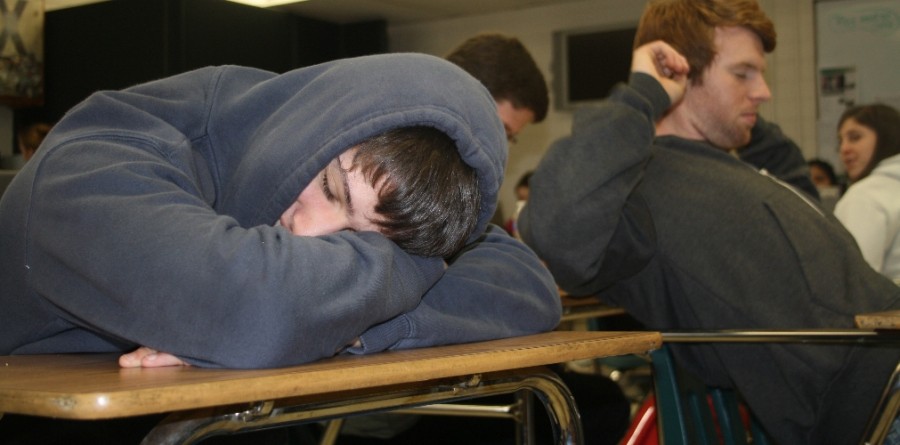Sleep is a common issue for most high schools, especially in a school as competitive and demanding as Langley. But how important is sleep? A Jan. 24 issued study from CNN reported that “research shows that lack of sleep can also lead to conditions such as heart disease, diabetes, even cancer”. In Langley’s own study, more than half of students claim to get four or less hours of sleep nightly. Metabolism, mental efficiency, and many other bodily functions depend on the amount and quality of sleep one gets each night. With SAT scores, midterms, and the start of the second semester on the line, how much can we afford to lose?
According to the National Sleep Foundation, a typical teenager needs between eight and a half to nine hours of sleep per night. In a survey of 100 Langley students, only 12 averaged that amount of sleep on a school night.
“A sleep deficit, though unpleasant, will not kill you,” said senior Rob Downs, the psychology club president. “Your brain is a computer, and sleep is its way of recharging, making software updates and cooling down.”
Essentially, our brains function more efficiently with a higher input of sleep; it is as simple as that. And when our brains function more efficiently, we perform better at school, in the classroom, and around our peers.
Still, if the brain remains “uncharged” for too long, it can begin to negatively affect the nervous system. According to the National Institute of Neurological Disorders and Stroke (NINDS), lack of sleep can lead to impaired memory, hallucinations and mood swings. “Your brain hasn’t recharged, so it has a tougher time replenishing the chemicals that facilitate neural and cerebral activity,” said Downs. Basically, parts of the brain (see below) that affect memory, learning and organizing information haven’t “recharged” long enough.
“Catching up” on sleep during the weekends also proves to instigate various problems, as it affects our “biological clock.” By waking up at different times, it confuses the “circadian clock” that balances sleep time and wake time, according to National Sleep Foundation. For instance, if a student sleeps from midnight to 6 a.m. on a school night, then midnight to 11 a.m. on a weekend, the period in which you are most “awake” during the day varies, making it more difficult for your body to adjust. This can lead to an increase in drowsiness during the day.
Apart from extracurricular activities and schoolwork, social activities for students—including Facebook and texting—often cause later bedtimes.
“Last year, I installed a device in my computer that tracked my Internet history, and it turned out I averaged approximately two hours a day on Facebook. That doesn’t include texting, TV, etc. I was getting around six hours of sleep a night, and you can do the math and see that, if I hadn’t used Facebook, I might have been somewhat healthier,” said Downs.
Larger problems remain concealed within pseudo-working, which is work without getting anything done—a similar action to another student favorite, procrastination. So although a homework assignment may take two to three hours, it can take hours longer if your brain is not focused.
All in all, Northern Virginia produces many competitive students looking to attend prestigious colleges. And for that, a student will need to maintain a solid resume without quitting an activity to get more sleep.
“Here’s a rule of thumb I use when I describe to people what Langley is,” said Downs. “There are essentially four things in a Langley Student’s life: Sleep, academics, extracurricular activities, and a social life. No matter what, you can only pick three of these.”
Additional reporting and writing done by Arianna Talaie


